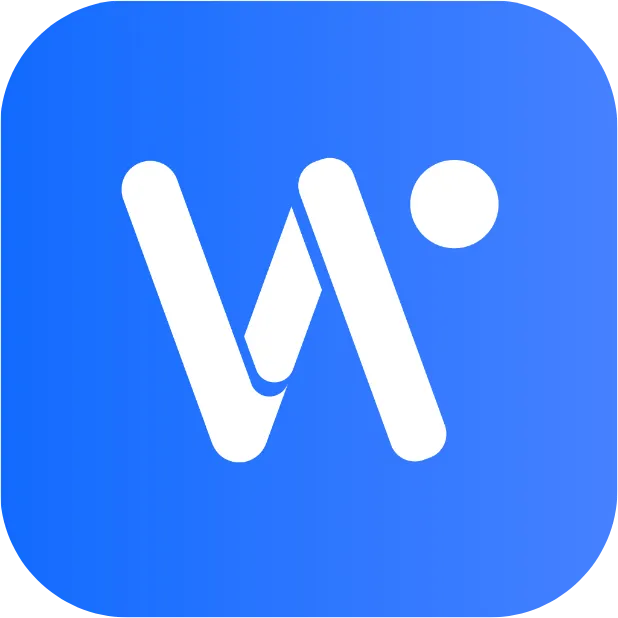Who else wants to revolutionize their SEM Google with AI-driven strategies?
The digital marketing landscape is undergoing a seismic shift as artificial intelligence becomes the cornerstone of search engine marketing . Recent developments from Google and Microsoft highlight how AI is transforming ad relevance, scalability, and performance optimization. At Google Marketing Live Taipei, Alan Poon, Google's performance product expert, emphasized that "the most important thing in 'Put Google AI to work for you' is actually 'YOU'." This statement underscores a critical paradigm shift—AI isn't just a tool but an extension of a marketer's strategic vision.
With consumer behavior evolving rapidly, businesses can no longer afford passive advertising approaches. Google's AI-powered solutions, such as Performance Max and Responsive Search Ads, are delivering staggering results—like Futu Holdings' 27% conversion boost and Klook's 115% increase in conversions. Meanwhile, Microsoft's research reveals that 41% of consumers already find conversational AI searches more accurate than traditional methods. These developments signal an urgent need for marketers to integrate AI into their Google strategies or risk falling behind competitors who leverage these technologies to unlock hyper-personalized, scalable campaigns.

Ⅰ. Core Google AI Tools for SEM Google Optimization
The foundation of modern SEM Google lies in harnessing Google's AI-driven tools designed to automate and optimize advertising performance. Performance Max stands out as a game-changer, using fully automated AI to continuously learn from consumer behavior patterns and deliver cross-channel reach. This tool eliminates guesswork by dynamically adjusting bids and placements across YouTube, Gmail, Display, and Search networks. For instance, Futu Holdings leveraged Performance Max alongside search ads to achieve a 27% higher conversion rate while expanding its fintech platform, Moomoo, across APAC markets.
Another breakthrough is the Responsive Search Ads (RSA) generator, which solves the pain point of multilingual ad creation. Travel giant Klook used this tool to auto-generate thousands of ad headlines and descriptions in 14 languages, improving Ad Strength by 50% and driving a 115% conversion uplift. Meanwhile, Demand Gen—Google's visual-centric AI solution—helped Airwallex increase brand searches by 30% through immersive YouTube ads tailored to high-intent audiences. These tools collectively demonstrate how AI transforms SEM from a manual, fragmented process into a unified system that aligns ads with real-time user intent.
Ⅱ. Data Integration and Audience Segmentation
The true power of AI-driven SEM Google emerges when combined with robust data integration. Ads Data Manager now enables seamless CRM/CDP synchronization, allowing brands like Standard Foods to segment audiences based on lifetime value (LTV) predictions. By uploading first-party data enriched with purchase histories, Standard Foods achieved a 64% LTV growth and 16% higher ROAS through AI-optimized bidding for high-value dormant customers.
However, many marketers struggle with data utilization. Google's AI Essential feature addresses this by providing real-time recommendations—from adjusting bid strategies to enhancing website tracking. As Google's James Lei noted, regularly auditing data collection is crucial for AI effectiveness. For example, Standard Foods used pLTV models to categorize members into high-value segments, then applied different conversion weights in campaigns. This precision, powered by SHA256-encrypted data hashing, ensures security while enabling AI to uncover hidden audience patterns that humans might overlook.
Ⅲ. Advanced SEM Google Tactics for Business Growth
Beyond basic optimization, AI enables sophisticated tactics like customer lifecycle marketing. Standard Foods' campaign exemplifies this—by using first-party data to identify dormant users and high-value prospects, they boosted overall purchase amounts by 12 percentage points. Google's new "profit optimization" feature takes this further, allowing merchants to input product costs in Merchant Center. Early tests show this increases campaign profits by 15% by balancing sales volume and margins.
Topkee addresses this shift through AI-powered solutions, including keyword research that aligns with conversational intent and dynamic ad creative production tailored to natural language patterns. Their expertise spans Google, Bing/Yahoo, and Baidu platforms, ensuring ads adapt to diverse search behaviors. By analyzing conversion reports and ROI data, Topkee helps refine semantic targeting strategies while maintaining compliance with platform policies—critical for sustaining visibility in evolving search ecosystems.
Airwallex capitalized on this shift through Target CPA bidding in Demand Gen, reducing acquisition costs by 24% while increasing lead quality.

Ⅳ. Trust and Transparency in AI-Powered SEM Google
Despite AI's potential, Microsoft's research reveals lingering consumer skepticism—only 59% trust AI platforms moderately.
Transparency is critical in digital advertising; Topkee addresses this through comprehensive SEM Google solutions including keyword research, landing page optimization, and detailed performance analytics. The company leverages AI-powered ad creation and precise tracking tools like Tracking Manager to ensure campaign transparency while maximizing ROI. Topkee's expertise spans major platforms including Google, Bing/Yahoo, and Baidu, offering measurable results through conversion reports and analysis. Their approach combines platform-specific optimizations with cross-channel performance evaluation to maintain advertising effectiveness and build user trust.
Best practices include:
- Clearly disclosing AI usage in ad disclosures
- Regularly validating AI recommendations against business KPIs
- Balancing automation with human oversight for ethical compliance
Klook's success with multilingual RSA ads demonstrates how trust grows when AI enhances relevance without compromising data privacy—a model other brands should emulate.
Ⅴ. Case Studies and Practical Applications
Real-world successes prove AI's transformative impact. Klook scaled globally by automating ad creation in 14 languages, while Futu Holdings used Performance Max to dominate APAC fintech markets. Standard Foods' data-driven approach turned member insights into a 64% LTV surge—proving even mid-sized brands can "win big" with AI.
Airwallex's Demand Gen campaign illustrates visual AI's power, blending YouTube ads with first-party lists to boost brand searches. These cases share a common thread: using AI not as a magic bullet but as a force multiplier for human-defined strategies.

Conclusion
The AI revolution in SEM Google is here, delivering unprecedented precision and scalability—from Klook's multilingual ads to Standard Foods' hyper-personalized promotions. As conversational search and visual Demand Gen redefine user expectations, marketers must act decisively to integrate these tools. Those who harness AI's potential while maintaining ethical transparency will dominate the next era of digital marketing.
Ready to transform your SEM strategy? Consult our certified AI advertising specialists to build a customized implementation roadmap.







